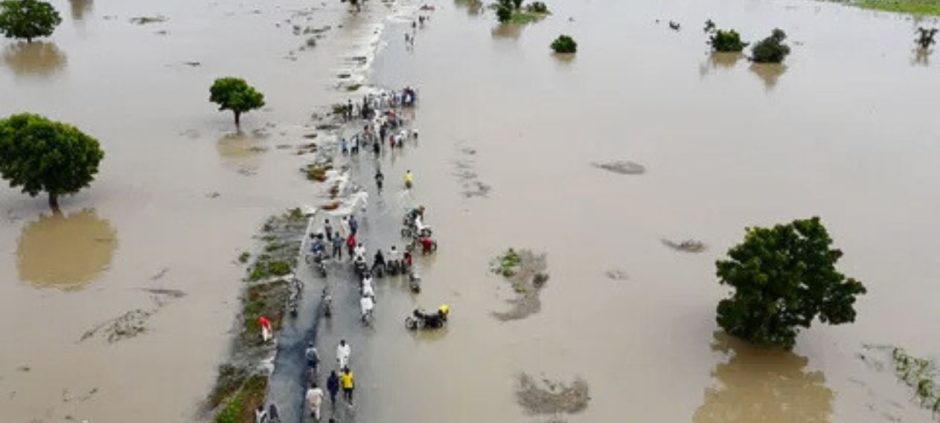Heavy rains and flash floods have wreaked havoc across Khyber Pakhtunkhwa, Gilgit Baltistan, and Azad Jammu and Kashmir. Officials confirmed that more than 420 people have lost their lives, while thousands have been forced to leave their homes as rivers swelled and landslides destroyed villages.
The situation has grown increasingly dire as swollen streams have swept away houses, bridges, and roads, cutting off communities from essential supplies. Emergency teams are struggling to reach remote valleys, while families displaced by the disaster are taking shelter in schools, government buildings, and makeshift camps.
According to provincial authorities, the death toll continues to rise each day as rescue teams recover bodies from debris and floodwaters. In KP, hundreds of homes have collapsed due to heavy downpours, leaving families without food, shelter, or clean drinking water. In Gilgit Baltistan, glacial bursts have triggered destructive floods in mountain valleys, while AJK has reported multiple landslides and road blockages.
The tragedy has once again drawn attention to Pakistan’s increasing vulnerability to climate disasters. Experts warn that climate change is intensifying rainfall patterns, making monsoon floods more frequent and severe. Relief organizations and government agencies are racing to provide tents, medicines, and food rations to survivors, but access challenges remain a major obstacle.
For many residents, this year’s disaster echoes painful memories of past emergencies. The scale of loss has prompted renewed calls for stronger flood management systems and climate adaptation strategies. Reports indicate that more than 10,000 families have been displaced, and thousands of acres of farmland have been submerged, raising fears of food insecurity in the coming months.
The devastation caused by the Pakistan floods underscores the urgent need for long-term planning. Without investment in better infrastructure, early warning systems, and sustainable water management, experts caution that such tragedies will only grow worse.
Pakistan floods spark urgent rescue efforts
As rescue operations continue, Pakistan Army personnel, rescue workers, and volunteers are working around the clock to save lives and reopen blocked roads. Authorities have also appealed to international aid agencies to step in with support. Despite these efforts, thousands remain stranded in high-risk areas where access is still cut off.
For survivors, rebuilding life after the floods will be a long struggle. With homes swept away and livelihoods destroyed, many fear they will be left behind once the waters recede.











